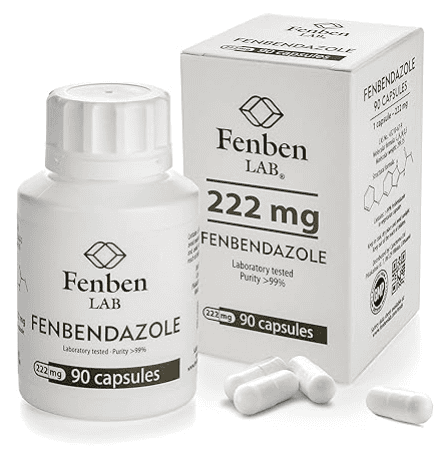For Ivermectin, consult your doctor. Do not use Ivermectin designed for animals as it can be harmful. See here for some safety and side effects information.
This article is intended to bring attention to the emerging research about Fenbendizole and Ivermectin as cancer treatments. I am not medically qualified and would not want to give anyone medical advice, but I want to make people aware of these drugs so that they can do their own research and discuss with their oncologists.
This is a very personal subject for me. My late husband was diagnosed with a Glioblastoma brain tumour 2 years ago and we had to face the spectre of brain cancer. When that happens, even the most alternatively-minded people can become very conservative about their treatment. It is terrifying to face a diagnosis like that and one feels entirely in the hands of the doctors. To a large extent, we are. I learned that there is such a thing as “Standard of Care”, which for GBM (and many cancers) includes some combination of surgery (where possible), radiotherapy and chemotherapy. Whilst we tried to discuss supplements, diet and complimentary therapies, the oncologists were completely disinterested and sceptical of anything other than the surgery/radiotherapy/chemotherapy path. But they didn’t object to the alternative options we wanted to try.
So I did a lot of research and came up with some useful information. I learned that high dose Vitamin C can be helpful, but that it has to be given intravenously. I found that it was very hard to find anywhere that would supply this. There were cosmetic-type clinics that offered IV Vitamin C, but they admitted that the dose was so low, it would not be effective for something like cancer. The hospital didn’t provide this as a service and didn’t seem to know much about it. So we had to abandon this plan.
I started reading frequently about Fenbendazole and Ivermectin as potential treatments for cancer. But 2 years ago, there was less information published about it. Our oncologists knew nothing about it. By this time, we were well into the brain tumour path and my husband was losing the power of speech and mobility. It was too late to get experimental and he didn’t want to. So we didn’t. But if we had our time again and knowing what I do now, I would have pushed more for this treatment option. I would be sending the current research to his oncologist and asking for support and advice. What follows is a summary of the current research relating to Fenbendizole and Ivermectin as cancer treatment, along with some links for your own research.
Recent developments in cancer research
Recent developments in cancer research have highlighted the potential of repurposing existing antiparasitic medications, such as fenbendazole and ivermectin, as alternative cancer therapies. These drugs, traditionally used to treat parasitic infections in animals and humans, respectively, have demonstrated promising anticancer properties in preclinical studies.
Fenbendazole’s Mechanism Against Cancer
Fenbendazole, commonly administered to animals for parasitic infections, has been observed to suppress cancer cell growth by disrupting microtubules—structures essential for cell division. By interfering with these structures, fenbendazole impedes the proliferation of cancer cells, leading to their eventual death. Studies have noted its cytotoxic effects against various cancer cell types, suggesting a mechanism akin to certain chemotherapy agents but with reduced toxicity to healthy cells.
Ivermectin’s Role in Cancer Treatment
Ivermectin, known for its antiviral and antiparasitic uses, has also been studied for its anticancer potential. It induces apoptosis (programmed cell death) in cancer cells by disrupting the WNT-TCF signaling pathway, which is often overactive in cancers. Inhibiting this pathway curtails the uncontrolled growth and spread of cancer cells.
Potential Synergy and Accessibility
The combination of fenbendazole and ivermectin offers a multifaceted approach to targeting cancer cells by affecting different cellular processes. When used together, they may enhance each other’s efficacy, potentially leading to more effective treatments. Additionally, pairing these drugs with compounds like quercetin, curcumin, and vitamins C and D could further augment their therapeutic effects.
A significant advantage of this combination therapy is its affordability and accessibility. Both fenbendazole and ivermectin are off-patent, resulting in lower costs compared to conventional cancer treatments. This makes them particularly appealing for patients seeking cost-effective alternatives.
Challenges and Considerations
Despite the promising findings, several challenges hinder the mainstream adoption of these treatments. The lack of financial incentives for pharmaceutical companies to invest in large-scale clinical trials for generic drugs means that comprehensive research and approval processes are limited. Consequently, the medical community remains cautious, emphasizing the need for further research to conclusively determine the efficacy and safety of these therapies.
Conclusion
While fenbendazole and ivermectin show potential as alternative cancer treatments, it is crucial for patients to consult healthcare professionals before considering such therapies. Ongoing research and clinical trials will provide more definitive answers regarding their role in cancer treatment. In the meantime, these developments offer a glimpse into the innovative approaches being explored in the fight against cancer.
For more detailed scientific insights, refer to research articles available on PubMed Central.

